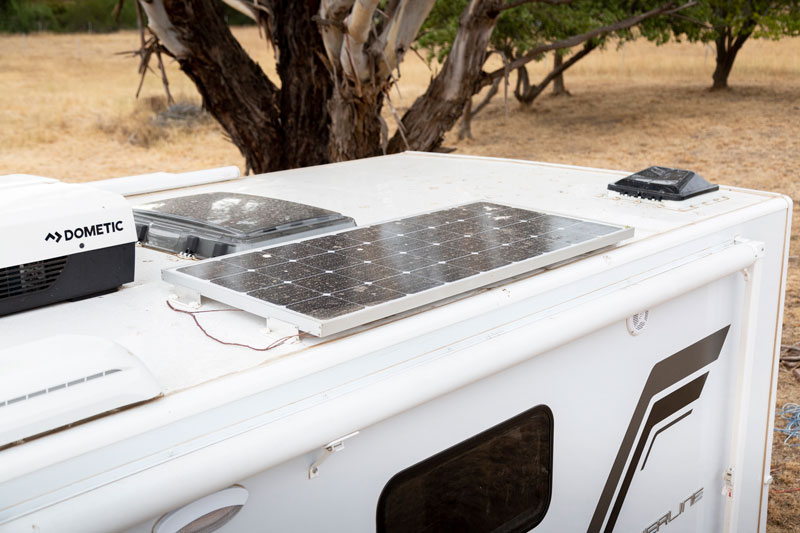
12V Guru – Optimising your Solar Power System
Solar Panels installed on your vehicle roof? Our 12V Guru discusses how to optimise their performance in place of buying more panels
G’day 12V Guru ,
I have recently upgraded my vans 12 V electric system with LiFePo4 batteries & associated charger & solar controller . As I now have plenty of 12v power , I am considering installing an inverter to run a microwave & washing machine for convenience sake. Often camp sites have water but no 240v , so it could be handy to catch up on a bit of laundry. So, in such a case , what size inverter would be necessary & how to use it? Is it connected directly to the appliance used or just plug it into van 240v input socket. Looking forward to your advice, cheers Ron.
Ron Hughes, Latrobe, TAS
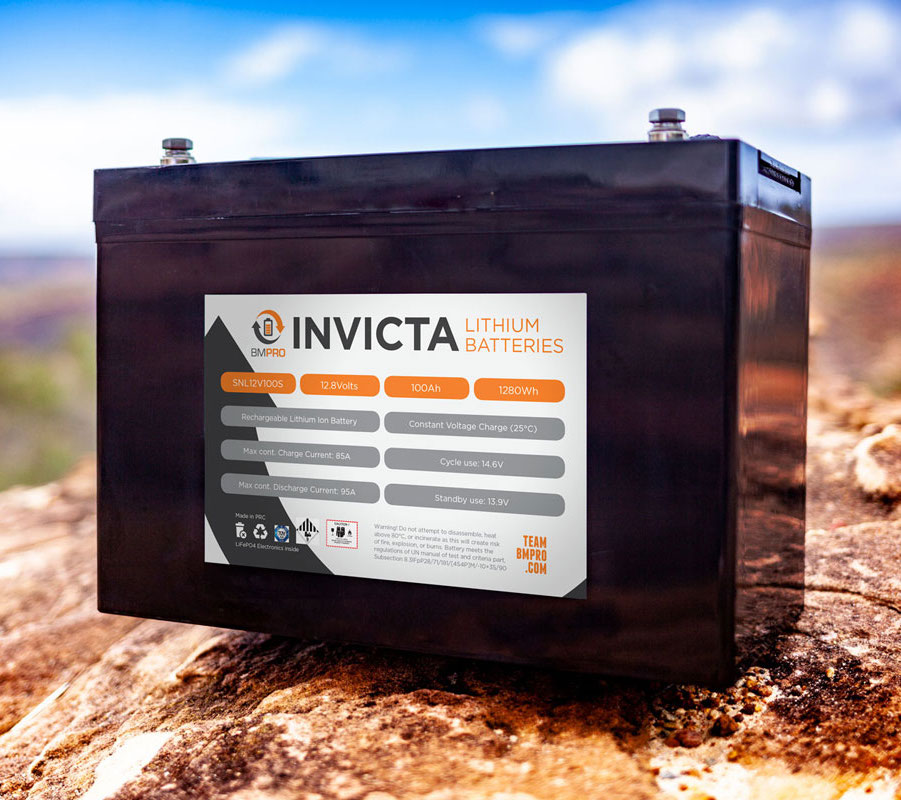
Great question Ron.
Inverters are a great way to power some of those little life luxuries that you may want to have when going off-grid. Once installed they are generally very easy use, with a simple on/off switch with one or two power points for you to plug your appliance into. However, we need to do some background work first. To work out the correct size inverter required, you will need to first look at the appliance compliance plate or the user manual to see what the minimum and maximum wattage is of the appliance.
Once you have this information you will then be able to start looking at inverters to suit the application, keeping in mind that a bigger the inverter may not always be best for your application, as the bigger the inverter the more power it may use to power its own internals components.
To calculate the size of inverter you will need to consider a couple of issues. Firstly, how many devices do you wish to run at one time. If you don’t need to run the coffee machine, hairdryer and microwave at once a smaller inverter will work. Secondly, check the electrical specifications of the devices you wish to power and they should clearly state the amount of energy in Watts that is required.
Remember to also check the peak current – more on that below.
Your battery (bank) size will also have an impact on the size of the inverter which you can utilise.
Refer to the table below for recommended inverter sizes vs battery bank size.
Battery Bank | Inverter Size |
100Ahr | 1000/1200W |
200Ahr | 2000W |
300Ahr | 3000W |
400Ahr | 3000W |
Always double check if the Power Management System (BMS) of your lithium battery can handle high loads
As we are stepping up the voltage to the appliance you may end up using around 100ah for example and due to this, you will also need to double check that the Power Management System (BMS) of the lithium battery can handle such high loads, as there are some BMS that are only rated at 50ah and others that can go as high 200ah continuous. Some BMS may only allow surge to 100ah for 30 seconds before going into some form of over current protection.
Don’t connect an inverter to a standard GPO in your van as it is unsafe and there is no circuit breaker should a fault develop – highly dangerous. If you only use one appliance at a time, you may not need such a big inverter or even such a massive battery bank to suit. Having items connected all the time to the inverter such as Wi-Fi hubs, pay-tv boxes and TV’s can keep an inverter on and wasting power. Remember that many 240v appliances are also still in some form of standby and are using small amounts of power, and these phantom loads can further drain your power.
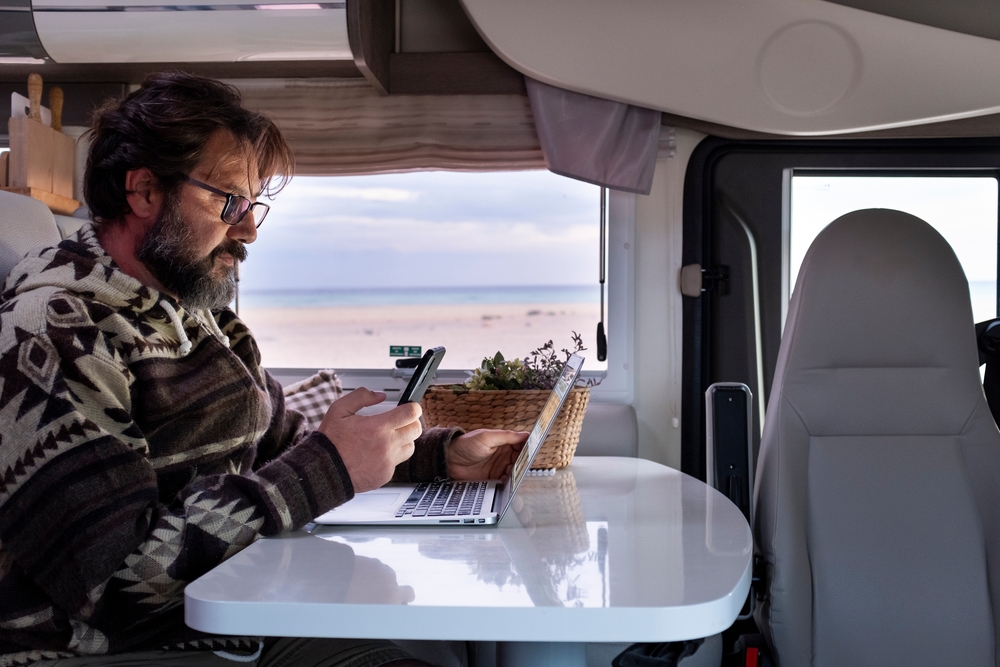
The effect an inverter has on your battery life is without a doubt the most significant point of consideration of all. The power that an inverter draws from your battery dwarfs that of 12v appliances. Therefore, it can have damaging effects on your battery, depending on your setup.
My standard recommendation would be to go for a Pure Sine Wave inverter simply because it can cope with more sensitive electronics. Yes, these will be more expensive however a pure sine wave inverter will consume less energy, operate at a lower temperature, work with a wider variety of electronics, not last as long and not create ‘noise’ (that annoying hum or crackle in the background).
Inverters that are used for a period will heat up as they generate AC power. This heat is effectively the losses in converting energy from DC to AC and are lost as heat. More efficient (and probably more expensive inverters) will generate less heat and convert the power more efficiently. The inverter should never get so hot that it causes burns to skin. There are strict regulations regarding electrical devices ensuring that they operate safety at 60C or less. Ensure you provide inverters with adequate airflow to allow the dissipation of heat and pay attention to mounting instructions as the inverter will have been designed with air flow in mind to cool if required.
Happy Caravanning
Kind regards
12Volt Guru
Like this post? Share it!

Solar Panels installed on your vehicle roof? Our 12V Guru discusses how to optimise their performance in place of buying more panels
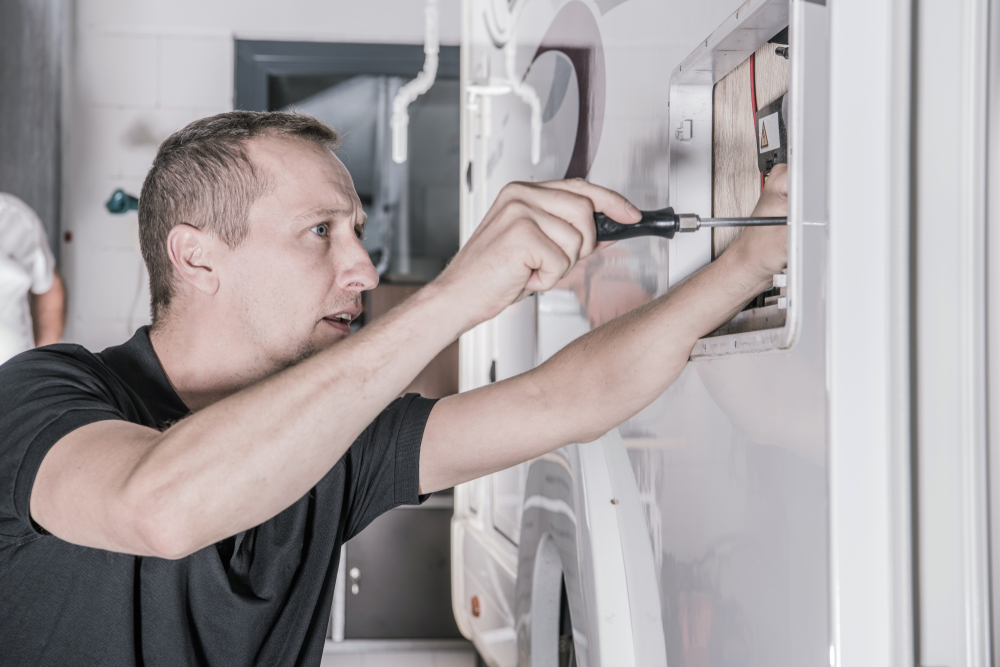
Looking at installing your own 12V products such as a DC-DC charger and shunt? Our 12V Guru discusses connectors and what you need to know here
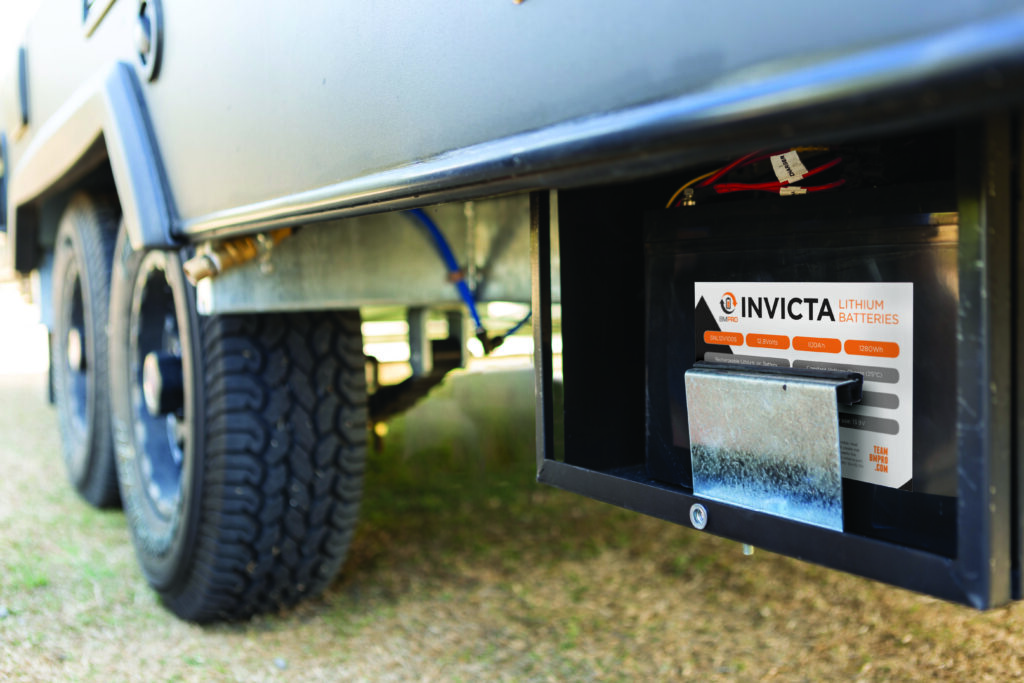
This is a guide to help understand the requirements of the new standard in relation to lithium battery

© 2020
4 thoughts on “12V Guru – Inverters Essentials”
Definitely, a pure sine-wave inverter is the ONLY option to consider.
A 1KVA inverter is unlikely to run a 1000 watt caravan microwave, as the input power to a microwave is significantly higher then the output power it produces.
The inverter will only produce the power that the output load requires. So a 2KVA inverter will not necessarily use twice the amount of power as a 1KVA unit, unless the output load demands are more than 1000 watts.
A caravan-sized washing machine (e.g. 3 to 3.5 kg load) requires around 250 watts – cold water only. But the motor startup current will be higher, and the inverter needs to handle that also.
Expect to draw significantly more than 100 Amps from a 12 volt battery to supply a 1000 watt load. This can drain your batteries fairly quickly.
Hi 12v Guru
I have a 155ah Agm Gell battery and a 135ah lifepo4 both battries are wired independently and charge independently I am inquiring if I could connect both agm and lifepo4 batteries on the one circuit to run a 3000w pure sine wave inverter would there be a issue to mix two different types of battery
Regards
Anthony
Hi Anthony, thanks for your inquiry.
Batteries should always be matched as far as chemistry and size to maximize the efficiency of the batteries. Different battery types behave differently when being charged or discharged. When a load is applied to both the batteries, they will both discharge at different rates and may cause damage to the battery or the device connected to them.
Kind Regards,
Glen
Hi 12Volt Guru
In the section “Inverter: Things to look out for” you have used the wrong units. Current is A not ah.
Units are important and often abused but a 12 Volt Guru should know their stuff!
Otherwise a good article.
Cheers Peter